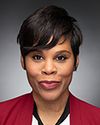I understand and appreciate that, Mr. Chan, but your CEO, before Congress, committed not to establishing Spanish-speaking moderators but increasing the number of Spanish-speaking moderators in the United States, so he disclosed that there were Spanish-speaking moderators in the United States.
I don't understand how we cannot know if there are French-speaking moderators in Canada. We're not asking who they are or where they are. I would request that you get back to the committee in writing if you are able to disclose whether there are or are not French-speaking moderators in Canada.
Let me move to another question.
You said that all Facebook policies are published, and I appreciate that. However, you have guidelines that you give to the content moderators that are not published. The Guardian, on March 23, [Technical difficulty—Editor] moderators, and noted that it spelled out differentiations between protections for private and public individuals.
In Quebec, several mayors have said they will not run in the next election because they have received threats on social media.
[Technical difficulty—Editor] that, given that people in Quebec now are not running for re-election because of social media, I'm a bit concerned that the guidelines seem to specify that private individuals cannot be targeted with calls for death on Facebook, but public figures simply cannot be purposely exposed to such calls.
Therefore, it would be interpreted that it is legitimate under Facebook's harassment policies to call for the death of a public figure as long as the user does not tag them in the post. Are these reports about these policies accurate in terms of the guidelines being given to moderators?





